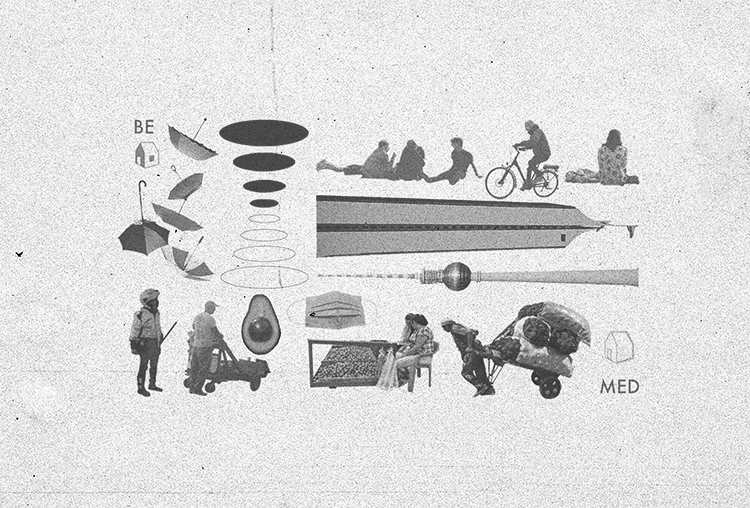
Uneven Pandemics
– from Nicolas Goez, Berlín/Medellín, 31.05.2020
I dwell two cities. In one, I am physically present and sometimes mentally absent. In the other, I am emotionally roaming through its streets, parks, and those realities that were inaccessible to me in the past, before I left. I am a migrant, a Nepantla. I am not from here nor from there but from both places. And since I dwell these two cities simultaneously, I also see beyond borders. I see two pandemics, two reactions, two realities: one in The North and one in The South. My everyday changed in both.
Here in Berlin, the city seems reluctant to isolation. At the beginning, I saw some airs of fear that dissipated quite fast. Now, public space is booming, and we are filling the parks with social interactions which are at times distanced, and more often warm. It all coincided with the beginning of the summer. Untimely as it could ever get. With some limitations, the routine limps its way through. The city refuses to be shut.
Here in Medellin, we always have that tropical spring with the casual rain and the burning midday sun. Public space always booms here as long as there is light, because once it gets dark, the city becomes that hostile landscape ruled by the law of the strongest. With the pandemics, coercion hovers over Medellín. The last digit of my ID determines whether I can leave my home or not. And beyond official constraints, there is also that conservative and punitive gaze of the Medellin society, violently sentencing those who have no other choice than to go outside. Those who go out are the so-called informal economy. They keep the reminiscent public space alive, selling things on the street, to which the state responds by destroying their products, inconveniently, now that no one is watching to prevent abuse of power. Staying at home means starving for many and only the streets provide their livelihood. The city cannot be shut.
I see this whole idea of “informality” as a dogmatic worship of modernity. We commonly use that word for anything that is outside the legal or established system. Places like a township, a slum, or a favela are exemplary. And the people who dwell in those spaces are in most cases automatically labeled as informal. How can it be that most of the urban population in the world is “informal”?
In Berlin, the Thai-Wiese is an open-air market in which south-east Asian women informally sell street food. Last Sunday, I went there to see how that informal North is coping with the pandemics. They were gone, as if they had never existed. As if the virus had erased them.
In Medellín, the same people are being beaten on the bare streets. Here, I think, those who seek shelter and livelihood in the city were erased long ago.
One thing these pandemics have unveiled is the unevenness of our cities. Although that was already clear before Covid-19, both in the North and in the South.
+
Graphic by Mateo Sepulveda (Medellín)
POST(COVID)CARDS
